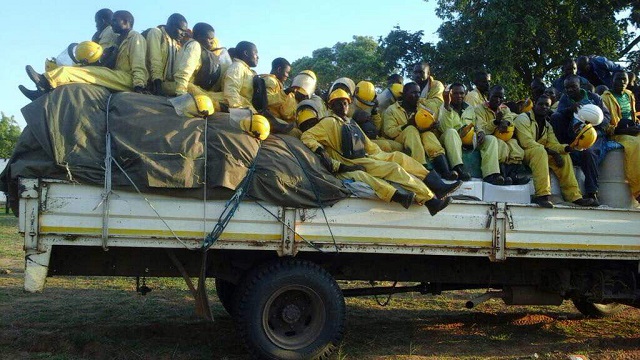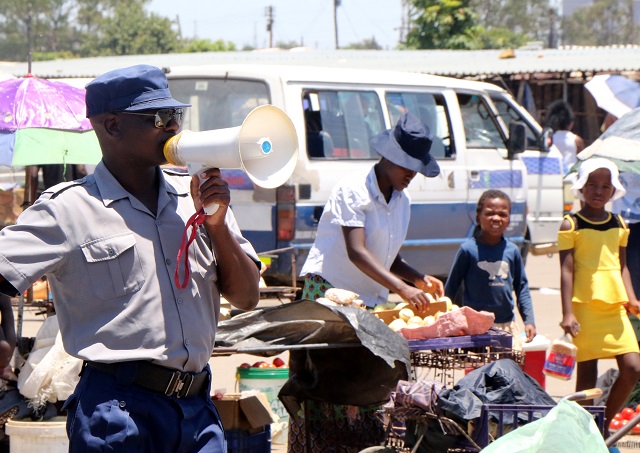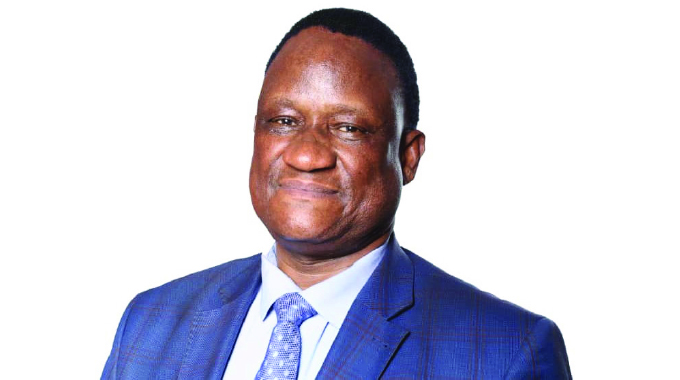Trucks are not public service vehicles

Andile Tshuma
THE year 2017 has seen Zimbabwe recording a number of horrific deaths in accidents involving trucks overloaded with passengers on the country’s roads.
While road carnage in general seems to be spiraling, Government institutions responsible for road safety have called on the public to desist from using vehicles not designated for carrying passengers.
Early this month on December 3, 21 people employed by the Ministry of Health perished while 48 others were seriously injured after a truck they were travelling in failed to negotiate a curve and rammed into trees in Jimila, Tsholotsho.
The accident was met with widespread outcry by members of the public who castigated the ministry for not allocating proper transport for its staff and equipment while some people took a swipe at the driver for not taking heed of his passengers’ advice to reduce speed.
In August, another fatal accident resulted in the death of 11 people while 119 others were injured after a haulage truck they were travelling in plunged into a gorge in Kamativi. The accident shocked many people who found it unimaginable for a lorry to carry 130 passengers.
National Police spokesperson Chief Superintendent Paul Nyathi warned the public against resorting to non-public service vehicles as modes of transport following the blood curdling accidents that have occurred during the year.
“Haulage trucks are not public service vehicles and people should be warned against using them. In the unfortunate event of an accident, we usually have high fatality rates mainly because trucks are not designed to ferry people, but goods. In these vehicles, people tend to overload these trucks,” said Chief Superintendent Nyathi.
He said there is an exception in cases where companies ferry their employees in haulage trucks or other types of trucks as long as the trucks are not overloaded and are certified as roadworthy.
“We do not allow trucks to carry people, with the exception of companies transporting their own employees in a roadworthy vehicle which is not overloaded,” he said.
“It becomes tragic when accidents occur, but unfortunately people do not heed our advice when we warn them against such dangerous practices on the roads. People tend to think the police are mean on the roads, but traffic officers will be doing their jobs to protect them and to help save lives because it is very painful and devastating when people perish,” said Chief Superintendent Nyathi.
In an interview, one of the survivors of the Tsholotsho accident, Mr. Wilcot Nkomo, said he was lucky to be alive and alleged that the driver had been speeding. He said the truck driver drank “too much” beer in Lupane and they had cautioned him against speeding on the way to Tsholotsho to no avail.
“I am lucky to have survived this accident and it is sad that 21 of my colleagues passed away just like that. I definitely blame the driver for his rowdy behaviour and excessive drinking before we departed for Tsholotsho. We warned him several times on his reckless driving and speeding. At some point he drove at five kilometres per hour for a while just to provoke us after we had complained that he was speeding,” Mr. Nkomo said.
“He later increased his speed and just before the accident occurred he approached the curve at a very high speed and failed to negotiate the curve.”
Traffic Safety Council of Zimbabwe National Chairperson Mr. Tatenda Chinoda urged the travelling public to abide by road rules for their own safety and to board roadworthy vehicles.
“When you board a vehicle and you feel that somehow you are not safe, it is always better to drop off immediately. People travelling on major highways should avoid boarding non-public service vehicles,” said Mr. Chinoda.
Mr. Chinoda said the public should be aware of the fact that non-public service vehicles do not have passenger insurance, and will generally not assist any victims in the event of a road mishap.
“Public service vehicles have got passenger insurance, therefore in the event of an accident, travellers are compensated. However, those that choose to hitch-hike are left in the cold as they cannot claim any form of compensation from anybody,” said Mr. Chinoda.
A regular traveller, Mr. Philip Nkomo blamed the Ministry of Health saying it could have been better had the workers been sitting on the floor of the trailer.
“I saw pictures of this vehicle before the accident and you can see that they were sitting precariously on mounds of whatever it is they were carrying with nothing to hold them in place. Given the load the truck had, it would have made sense for it to transport the load first and return for the workers later, or better still, to hire a bus for the workers,” Mr. Nkomo said.
He said the Ministry should have drawn lessons from the Kamativi haulage truck accident considering that the two accidents happened in the same province, Matabeleland North.
A survivor of the Kamativi accident, Mr. Innocent Munkombwe (35), was recently quoted in the media as saying he could not believe he survived.
He said the sad part was that the driver, who also died on the spot, had tried to warn passengers that the truck was not in good condition, but they insisted that he should proceed with the journey.
“The truck driver informed passengers that the truck’s brakes were not functioning well. He actually stopped the truck and informed us that the brakes were not working well, suggesting that we put up and proceed in the morning after they fix them, but people refused,” Mr. Munkombwe said.
“We proceeded and at the steep curves after Gwayi Bridge going towards Kamativi, the driver suggested that we disembark and walk until we finish the steep curves as the truck was struggling to generate power to drive up the incline. We did as suggested and just after the steep curves we climbed back into the truck. As we approached the Ministry of Transport camp, a tyre burst and the brakes stuck. The truck veered off the road, throwing many people out of the trailer before it overturned.”
A truck driver, Mr. Boniface Chitando, said sometimes passengers are to blame as they only start complaining after an accident has happened yet they would have been involved in the build up to it.
“Take for instance, the Kamativi accident: at one point the driver of the truck informed his passengers that his vehicle had developed a mechanical fault but passengers insisted on continuing with the journey,” said Mr. Chitando.
“Still shocking is the fact that at some point the passengers were told to disembark so that the vehicle could negotiate the steep slopes and sharp curves. Surely, everything was pointing to a potential disaster.”
Some members of the public said the blame game must stop in the fight against road carnage noting that the issue of road safety was everyone’s responsibility.










Comments